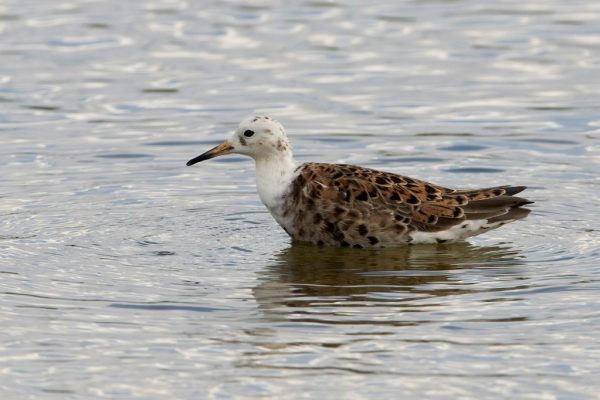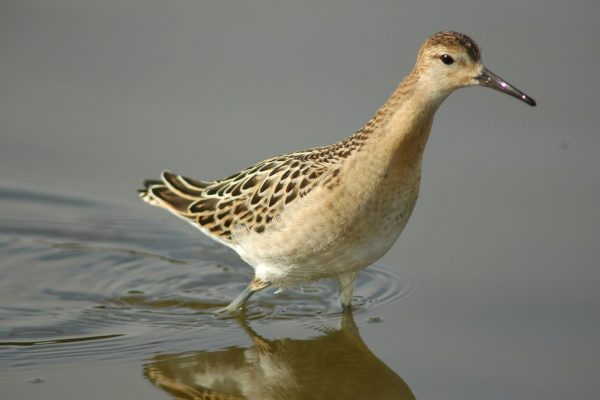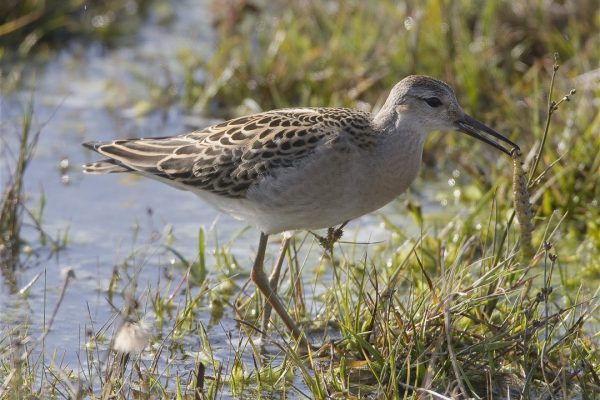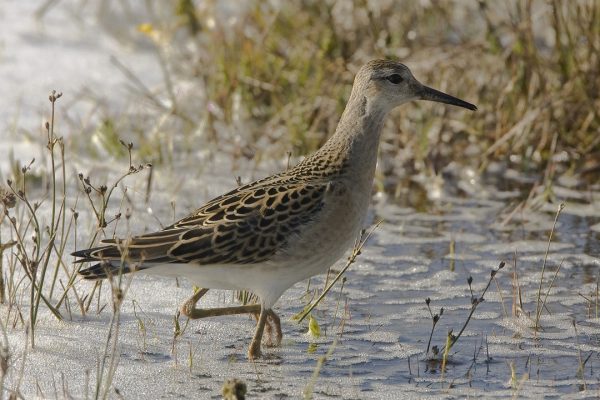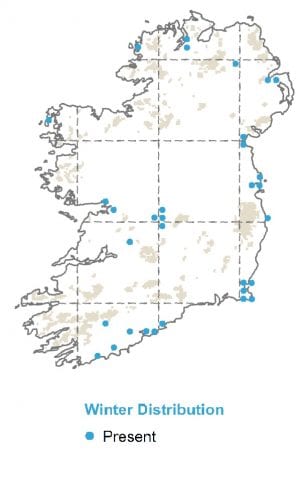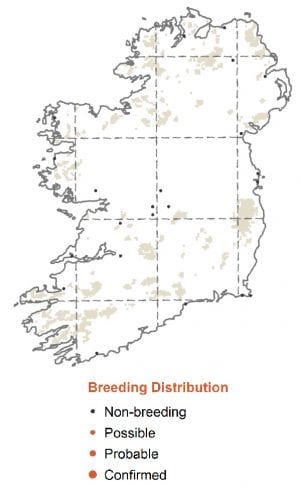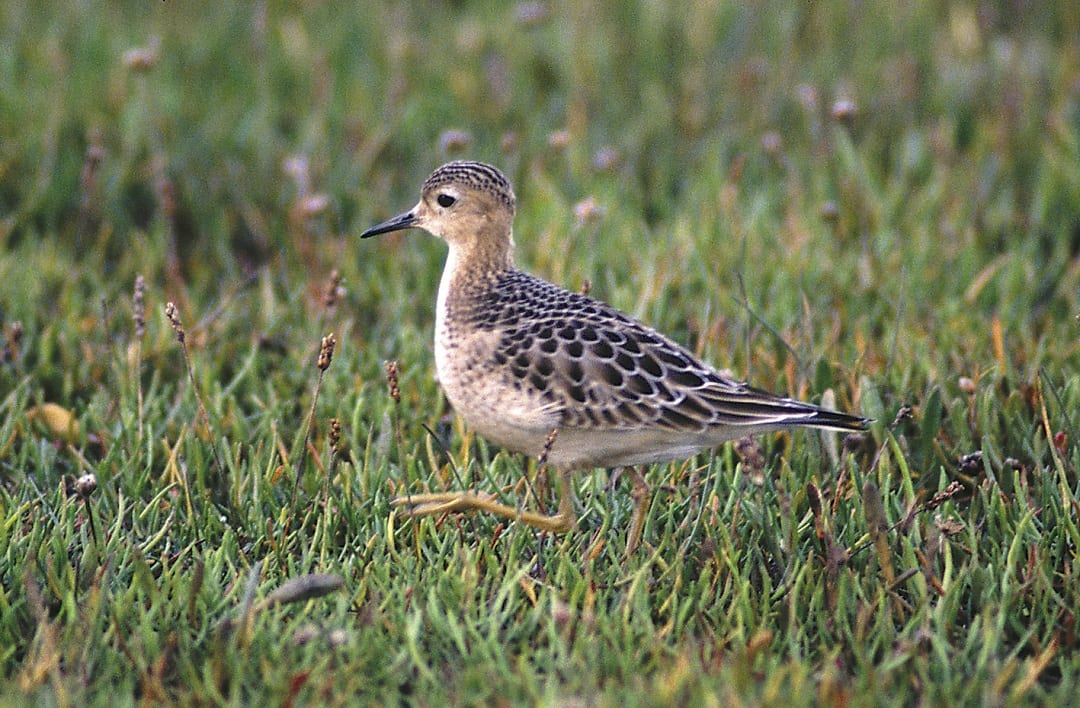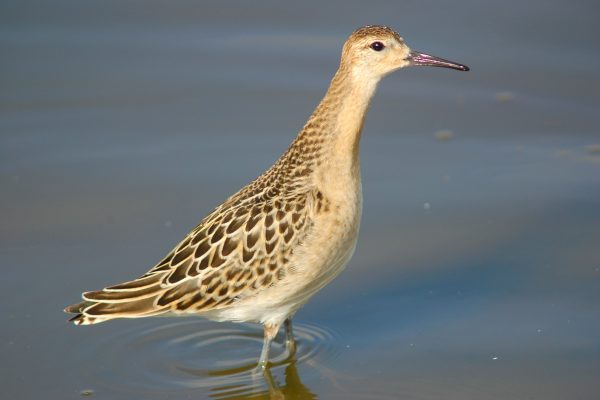
Ruff
| Irish Name: | Rufachán |
| Scientific name: | Philomachus pugnax |
| Bird Family: | Sandpipers |
amber
Conservation status
Conservation status
Status
Scarce spring & autumn passage migrant - occurs while moving from Siberia/Central Europe south to winter in Africa.
Identification
Though a distinctive wader, with a large body, smallish head, long neck and pointed, slightly decurved bill, individual Ruffs vary enormously in size and colour. Firstly males are approximately one third bigger than females (which are known as Reeves) - males being slightly larger than Redshank, while females are close to Dunlin-sized. Leg colour can be yellow, dull greenish yellow, orange or red. Bill can be all dark or show varying amounts of red or orange - often there is a white area of feathering around the base of the bill. Though males in full summer plumage are rarely seen in Ireland, this too is highly variable - the flamboyant ruff collar of chestnut red or black or even white is purely for display at the breeding ground. Occasionally, spring birds on passage may show a hint of these exotic colours, but the most usual plumage of birds seen here is of darkish brown wing and back feathers, each finely edged pale buff, creating a scaly effect, while the underparts are rather plain whitish, with a warm buff or creamy wash. In flight, a slow, almost floppy wingbeat is characteristic and the dark-centred rump with white ovals either side is a helpful identification feature. Not common, but can occur in small flocks in marshes, fields and mudflats - mainly spring and autumn.
Voice
Almost silent.
Diet
Feeds on Invertebrates found in mudflats.
Breeding
Does not breed in Ireland. Passage birds seen in Ireland breed in meadows and bogs in Scandinavia and Russia.
Wintering
Small numbers winter on estuaries along the southern coast of Ireland. The majority of the European population winters around the Mediterranean and western Africa.

